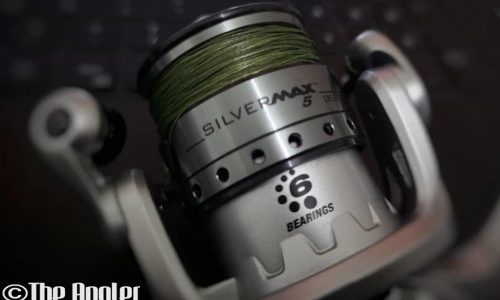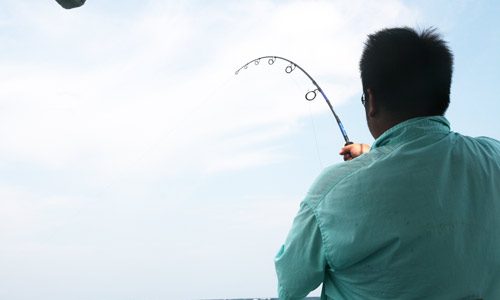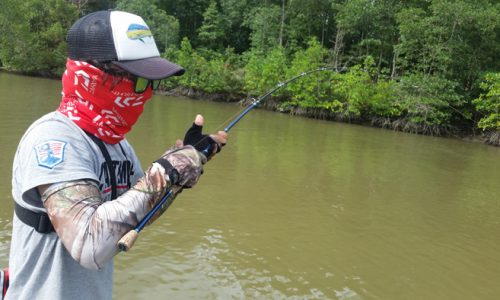Baitcasting Techniques
PART 9: Underhand Cast
Advertisement
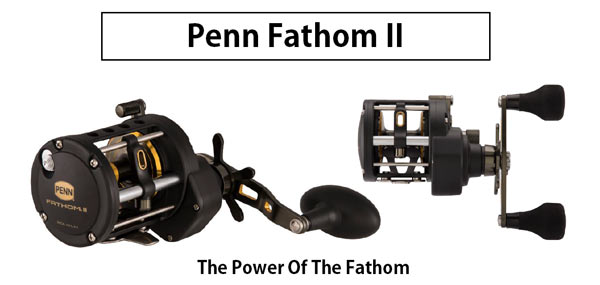
We have arrived at a casting technique that many have been asking me to teach. The underhand cast is one of the casting techniques that gives you accuracy and all you need is a little space. Imagine being squished in between two trees with overhanging branches and you still insist on casting towards the frenzy some distance in front of you.
The normal overhead cast will not work as you have over hanging branches. The side cast is a no too as there is a tree there. The backhand cast is also impossible to perform due to another tree being there. Pitching and flipping will not work due to the distance. You are left with one choice. The underhand cast.
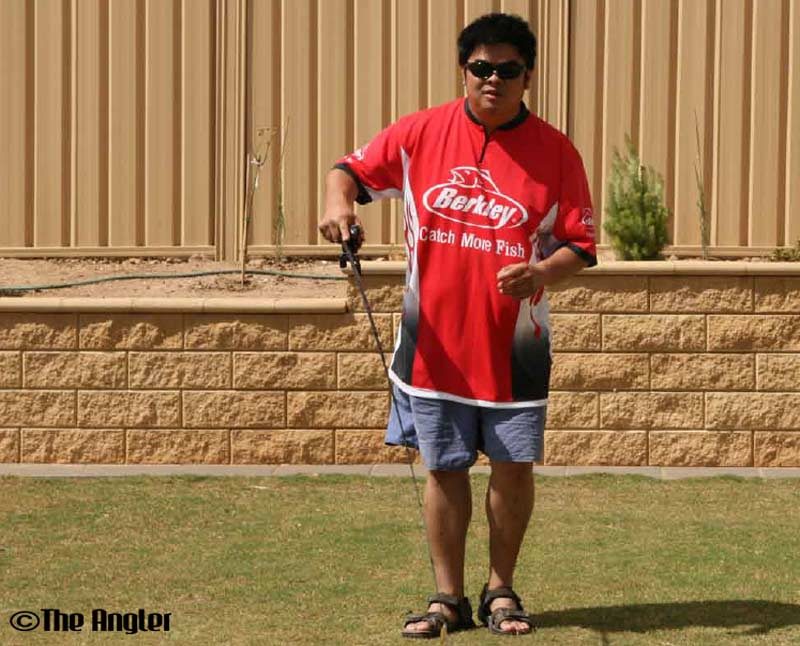
The underhand cast starts with the rod tip pointing downwards.
Training Tools
The underhand cast is one of the more difficult casting techniques to learn. My recommendation is to use a shorter rod (5’5”) with a flexible or rather slower tip action (tip with slow recoil or slower comeback rate). The reason for this is that you will need to feel the rod tip to catch the time of release. Also get yourself a casting plug.
Well Trained Thumb
For this technique you will need a well trained thumb. Feathering the spool is very important. Backlash or birds-nesting your reel is almost inevitable even on well trained thumbs. Okay, enough of scaring you. Now let us get down to the details.
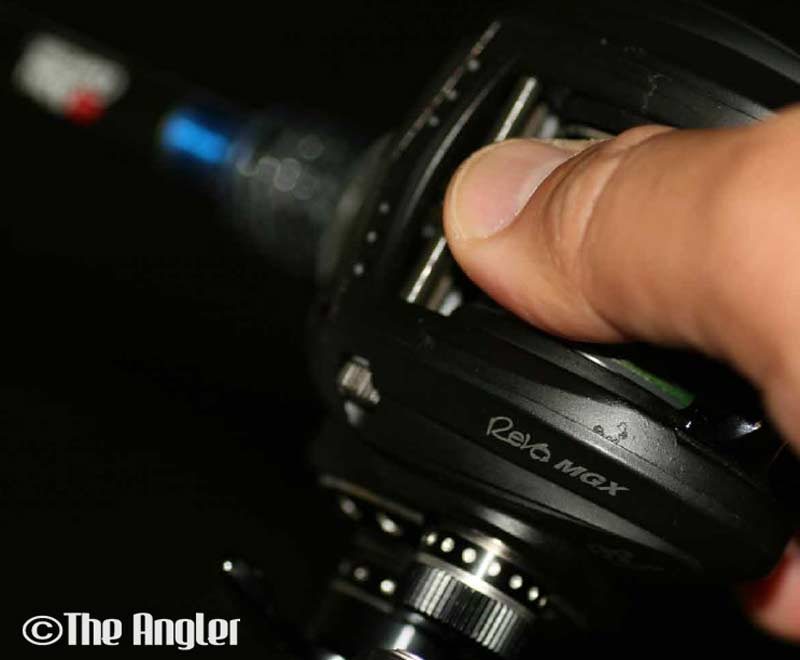
You need a well trained thumb for this.
The Mechanics Of The Underhand Cast
The underhand cast relies more on the tip of the rod to perform the cast. The idea here is to use the tip to shoot the plug (or lure) out. So what you will be doing is to basically whip the rod allowing the tip to bend inwards and as the tip goes back out, you release the spool allowing the tip to shoot the plug out.
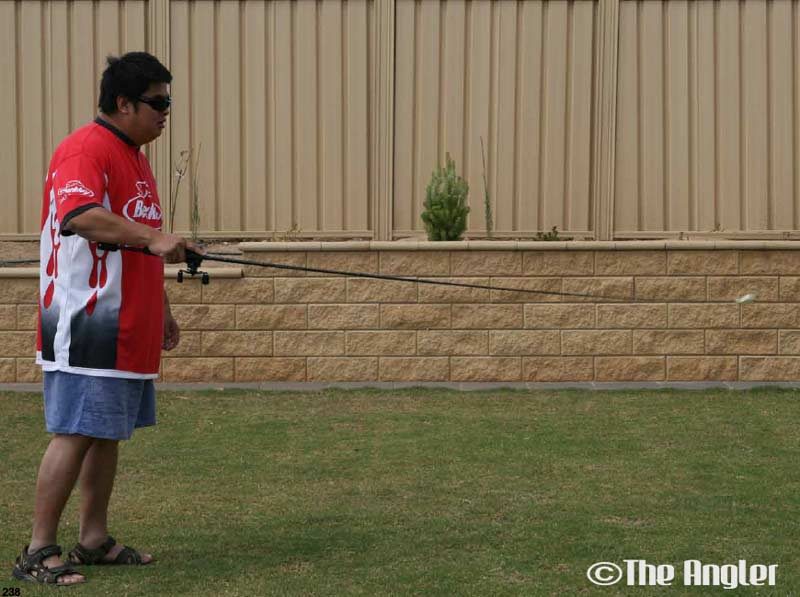
The underhand cast is done at about this level thus why a rod that is too long becomes cumbersome to do the underhand cast with.
The Practise
To do this, start with a tighter brake setting. Reel in the line bringing the plug all the way to the tip of the rod. Hold your rod in front of you pointing forward. Raise your entire arm to about shoulder height. Point the rod tip towards the ground as in the picture, at about 45 degrees angle. Now whip your rod tip and try to feel the tip.
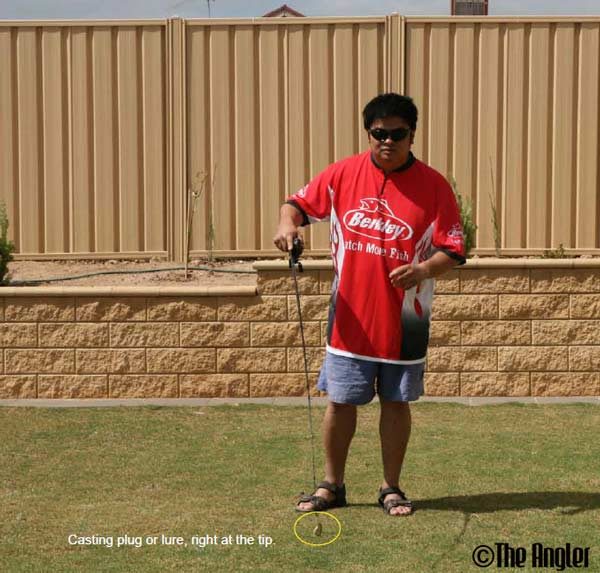
Place the lure or casting plug as close to the tip as possible.
As the tip moves in and right about where it is about to shoot back out, you will have to release the spool allowing the tip to shoot the plug out. Too early and the plug will dive right onto the ground. Too late and your plug will shoot right up in front of you.
Do this until you get the timing right. You will have to feel the rod tip and from there catch the timing or release. Don’t worry too much about the plug shooting out but at a higher trajectory. Just focus on getting the plug to shoot forward. It takes a lot of practice to get it right.
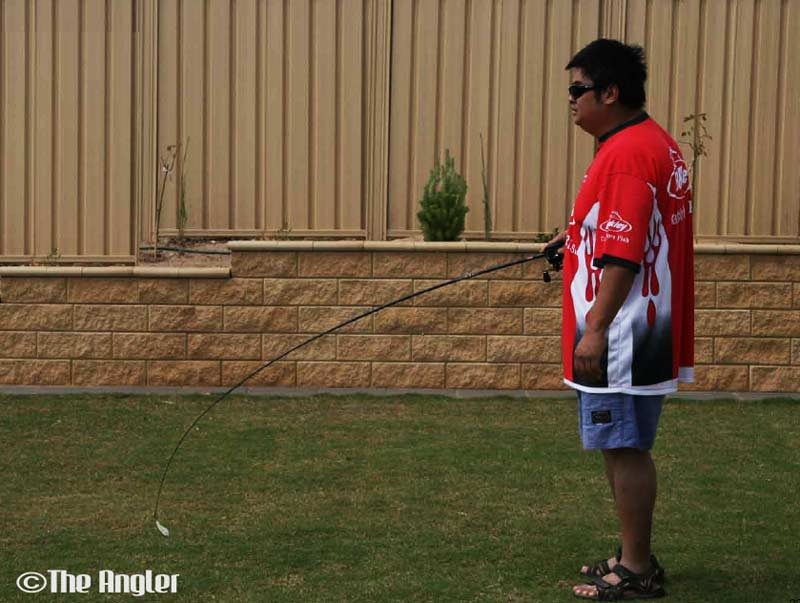
The lure (casting plug) is about to be flicked out by the tip of the rod.
Putting It To Work
Step One
Set the reel brakes just right (not too low). Reel up the plug till it touches your rod tip. Point the rod tip forward and raise your arm anywhere midway to about the height of your shoulder.
Step Two
Whip the rod and as the rod tip flexes inwards and is about to flex back out, release your spool allowing the tip to shoot the plug out.
Step Three
Point your rod tip outwards as the plug glides through the air and lower your rod tip as it reaches the water or in this case, ground.
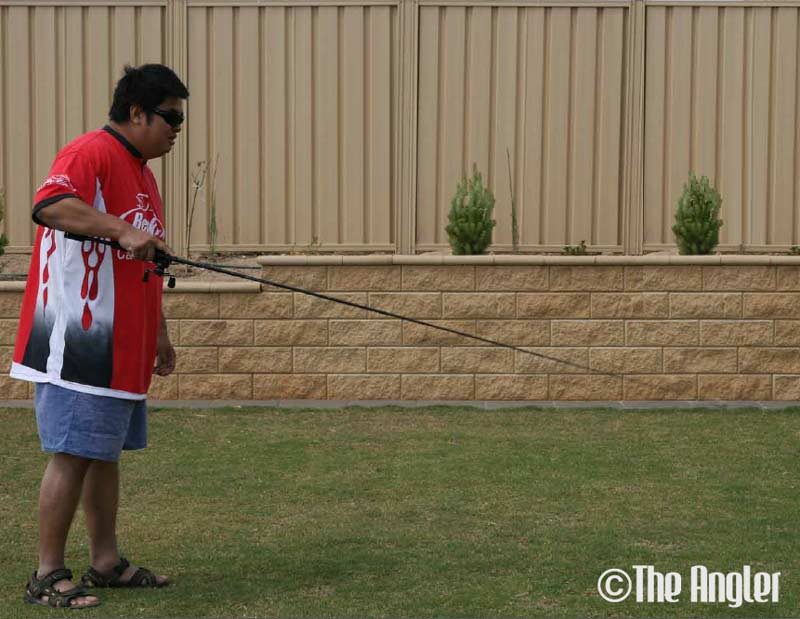
The lure (casting plug) shoots out.
Keep practising
Even when you get it right on many occasions continue to practise as this technique relies heavily feel. And when you change fishing rods you will have to catch the timing again.
Once you get used to the underhand cast and it becomes second nature, you can move on to heavier rods and you can also bring both your cast and lure flight height lower to allow for a quieter entry.
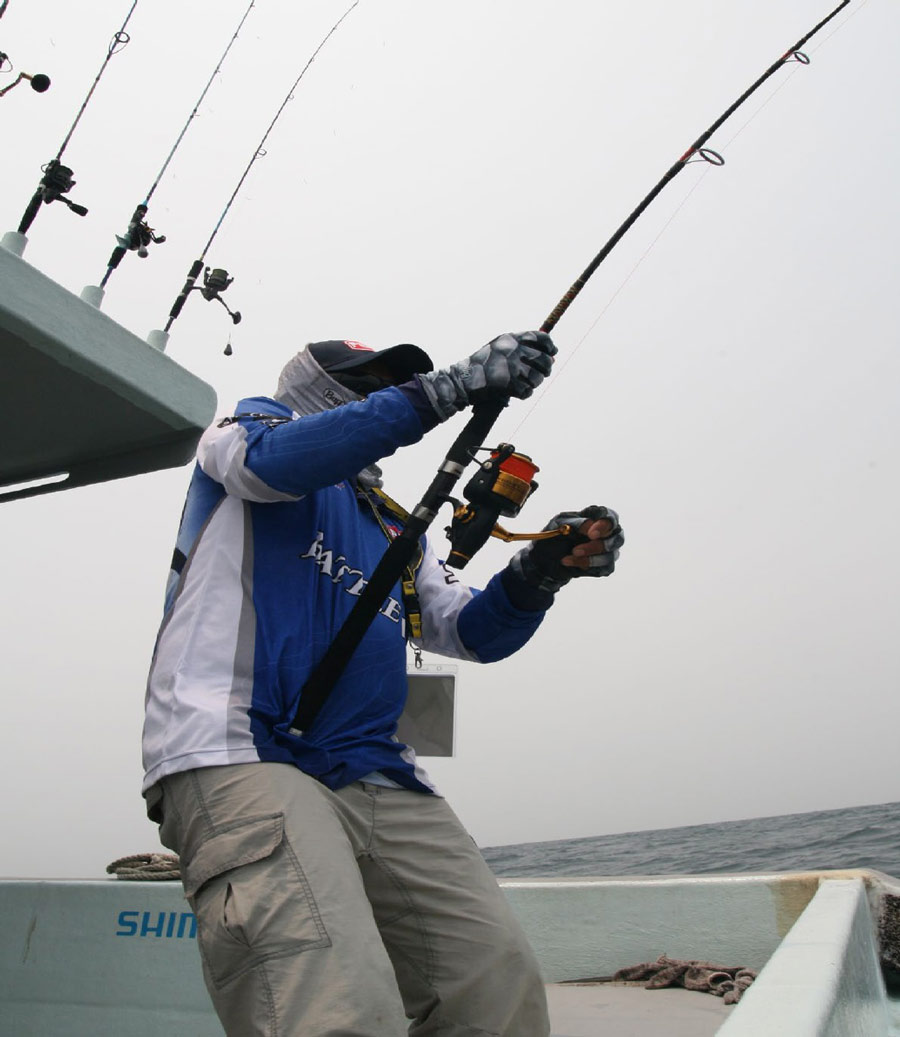
Contact us
For more information or should your have enquiries, do drop us an email.


